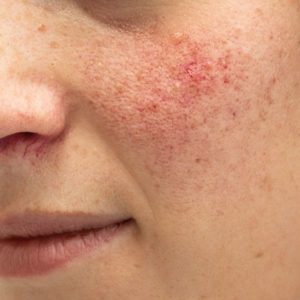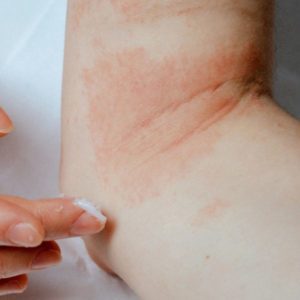The season of winter brings about many exciting things… cosy nights in, spending time with loved ones and of course Christmas. One thing less desirable about winter though, is the impact that it can have on our skin. Read on to find out how you can look after your sensitive skin this season.
Winter’s Impact on Sensitive Skin
Unfortunately, the changing climate is one factor that is out of our control which can really aggravate sensitive skin. The plummeting temperatures cause a significant change in the air pressure and therefore the elements are a lot harsher towards our skin.
You will know if you are having a sensitive skin flare up, as there will be a few changes in your skin. You may notice that your skin looks red and/or blotchy, feels hot to touch, is itchy and sore, or is flaky due to a build-up of dead skin.
If you have sensitive skin, it is likely that you also have a skin condition, such as Rosacea or Eczema. Next, we will go into more detail about these conditions and give some helpful tips for managing your flare ups.
Rosacea
Rosacea is a long-term skin condition that most commonly occurs in people of fairer complexions. It is also more likely to affect women than men, however anyone can suffer from the condition. Rosacea is characterised as the appearance of flushed skin, most commonly across the cheeks. The severity of the redness can vary and may be more intense at certain times and then fade away. Cold weather is one of the biggest triggers for Rosacea flare ups, as sufferers may find that their skin becomes even more sensitive, flushed and sore than in previous warmer months.
Rosacea may also increase the appearance of threadveins in the area, as well as small fluid filled lumps. Luckily, we are able to reduce threadveins easily and painlessly with our Thermavein treatment. This treatment works by targetting a small electrical current onto the surface of the threadvein. This then causes the vein’s walls to collapse, which redirects the vein into the skin and ultimately reduces the appearance of the threadvein.
Eczema
Similar to Rosacea, Eczema is another common long-term skin condition which can be triggered by cold weather. Also sometimes referred to as Dermatitis, Eczema causes skin to become sore, extremely dry and cracked. In severe cases, it can really affect the sufferer’s quality of life due to the pain. Some people have eczema in certain areas, however for others they have widespread inflammation all over.
The combination of colder air outside and indoor heating methods can really cause havoc on eczema-prone skin. As eczema flare ups are due to the skin being unable to retain moisture, this time of changing seasons can cause extremely sore and dry skin.
Top Tips for Sensitive Winter Skin
-
Invest In a Humidifier
Our homes in the winter are often nice and toasty thanks to our central heating, however it can be harmful for our sensitive skin. By using a humidifier in your room, you will be replacing the lost moisture back to the air. This can really help to stop your skin from drying out when at home.
-
Use Richer Ingredients
Whilst this may be an obvious one, it is an important one to remember as it can be all too easy to continue to use the same skincare products all year round. Whilst some people may be able to get away with this, people with sensitive skin definitely can’t. Instead of looking for moisturisers that are called “lotions” or “gels”, swap them out for richer “creams” and “butters”.
These products will be more hydrating and provide you with that all important moisture. One of our favourite moisturisers is the award-winning Obagi Hydrate. Featuring a unique blend of Mango, Shea and Avocado butters, it promises to provide long-lasting hydration. To find out more about this product, check out this post.
-
Choose Humectants
Quite simply, humectants are ingredients which attract and retain water within the skin. The most commonly known humectant, is hyaluronic acid. Hyaluronic acid is incredible for all skin types and can really help to improve the symptoms of sensitive skin.
Another useful humectant to look out for, is glycolic acid. As well as attracting and retaining moisture, glycolic acid is also an Alpha Hydroxy Acid (AHA). AHA’s are useful as they work to break down and dissolve the bonds which hold together dead skin cells. This can be particularly helpful if you have dry and flaky skin as it will encourage the skin to replenish itself.
-
Avoid Triggering Products
Everyone’s skin reacts differently to different products. Despite this, if you have sensitive skin, then using heavily fragranced products is a big no-no. Fragrance in skincare products is one of the biggest causes of allergic reactions and skin irritation. Instead, choose hypo-allergenic and dermatologist recommended products that are known to be kind to the skin. We highly recommend investing in medical grade skincare, such as the Obagi product ranges. These products are specifically developed to be suitable for all skin types and are non-irritating. To find out more about our skincare ranges, get in touch with us today.
Make sure that you are following us over on Instagram @simplyclinics & @dryoussefhaffar to stay up to date with our latest news!
Back










